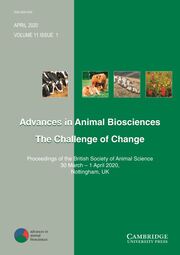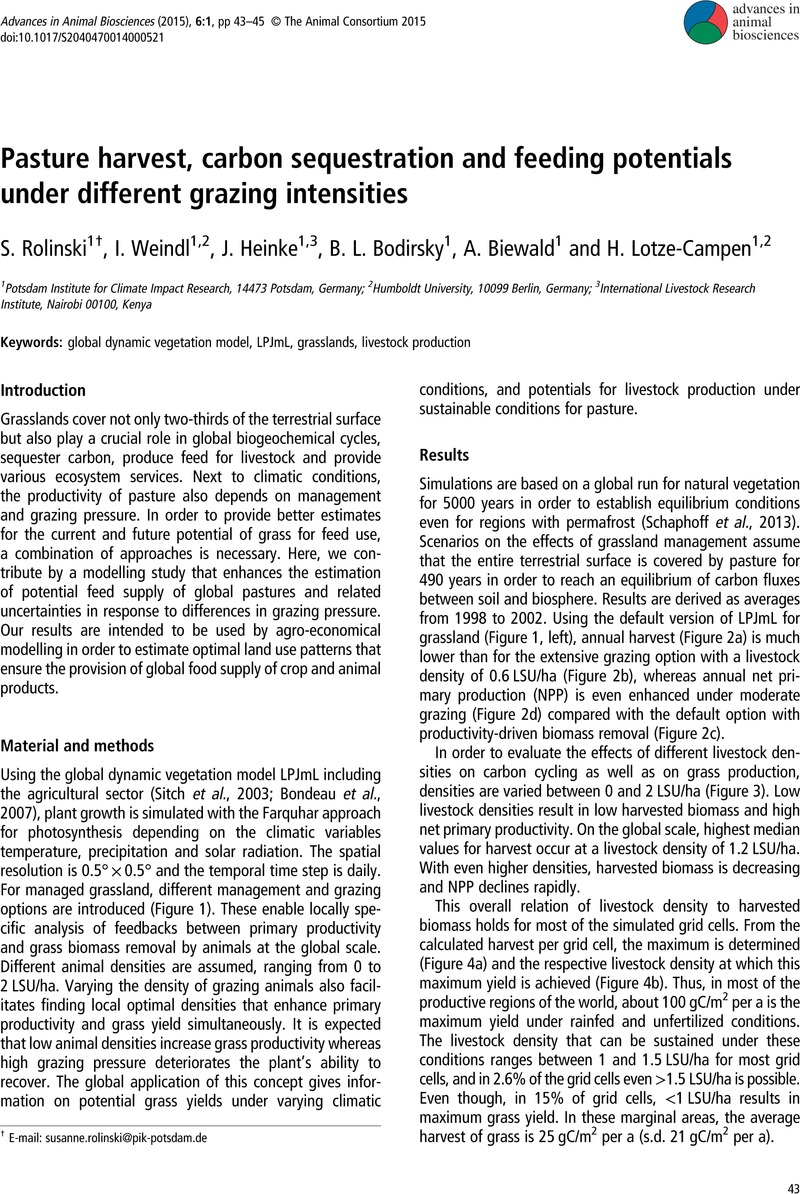Crossref Citations
This article has been cited by the following publications. This list is generated based on data provided by Crossref.
Vigan, Aurore
Lasseur, Jacques
Benoit, Marc
Mouillot, Florent
Eugène, Maguy
Mansard, Laura
Vigne, Mathieu
Lecomte, Philippe
and
Dutilly, Céline
2017.
Evaluating livestock mobility as a strategy for climate change mitigation: Combining models to address the specificities of pastoral systems.
Agriculture, Ecosystems & Environment,
Vol. 242,
Issue. ,
p.
89.
Boysen, Lena R.
Lucht, Wolfgang
and
Gerten, Dieter
2017.
Trade‐offs for food production, nature conservation and climate limit the terrestrial carbon dioxide removal potential.
Global Change Biology,
Vol. 23,
Issue. 10,
p.
4303.
Blanke, Jan
Boke-Olén, Niklas
Olin, Stefan
Chang, Jinfeng
Sahlin, Ullrika
Lindeskog, Mats
Lehsten, Veiko
and
Rutherford, Suzannah
2018.
Implications of accounting for management intensity on carbon and nitrogen balances of European grasslands.
PLOS ONE,
Vol. 13,
Issue. 8,
p.
e0201058.
Boke-Olén, Niklas
Lehsten, Veiko
Abdi, Abdulhakim M.
Ardö, Jonas
and
Khatir, Abdelrahman A.
2018.
Estimating Grazing Potentials in Sudan Using Daily Carbon Allocation in Dynamic Vegetation Model.
Rangeland Ecology & Management,
Vol. 71,
Issue. 6,
p.
792.
Lang, Birgit
Ahlborn, Julian
Oyunbileg, Munkhzuul
Geiger, Anna
von Wehrden, Henrik
Wesche, Karsten
Oyuntsetseg, Batlai
and
Römermann, Christine
2020.
Grazing effects on intraspecific trait variability vary with changing precipitation patterns in Mongolian rangelands.
Ecology and Evolution,
Vol. 10,
Issue. 2,
p.
678.



